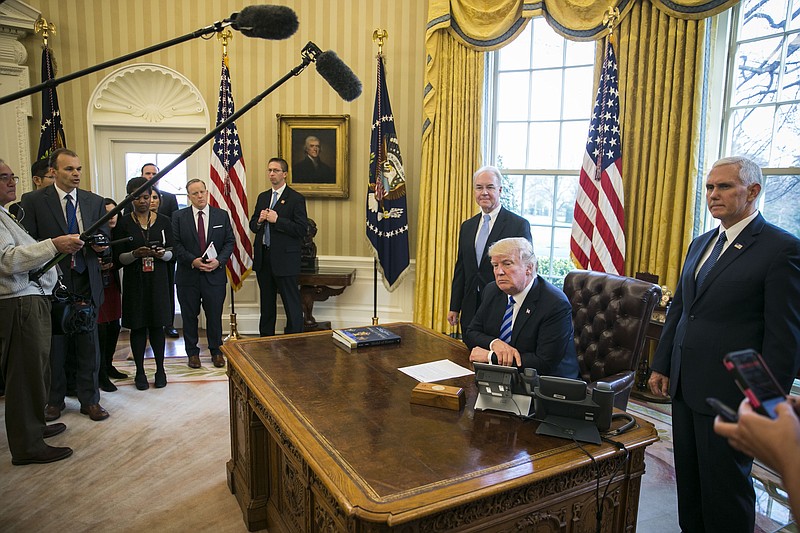On April 4, the Pew Research Center featured an article identifying where our federal taxes are spent. The analysis demonstrated that of the almost $4 trillion budget in 2016, $2.7 trillion was spent for "various kinds of social insurance."
The piece cited former U.S. Treasury Under Secretary Peter Fischer summing up the U.S. government in striking terms: The federal government is basically a gigantic insurance company, albeit one with a sideline business in national defense and homeland security.
While that social insurance includes federal spending on everything from Social Security and Medicare - both funded to some degree with payroll contributions - to Medicaid, food stamps and unemployment benefits, the facts remain. Our government is doing a whole lot of things it was never intended to do - including operating as an insurance broker.
While some subscribe to the "originalist" enumerated powers of the Constitution, many, in stark contrast, treat the federal government as a massive buying group that can offer services, protections and provisions all with strings attached.
Exactly, what's the definition of "insurance"?
Merriam Webster says insurance is coverage by contract whereby one party undertakes to indemnify or guarantee another against loss by a specified contingency or peril.
Authentic health insurance no longer exists. The day that a patient makes a consumer decision on which physician to see, which hospital to use and which treatment is best has long passed. That was when a major-medical policy stepped in for significant surgeries, procedures and costs to prevent financial hardship, leaving all other medical decisions to a patient.
Today, insurance companies are the customer because they make the decision and pay for the services rendered. With contracted providers, pharmaceutical companies and hospitals, insurance companies charge premiums to patients, sending them to networks created of approved providers. Treatments are permitted from established formularies that limit certain medicines available for treatment. Insurance companies tell patients which hospitals are approved for a surgery or specialty care. Patients pay; insurance companies decide.
Life insurance, home insurance, auto insurance and others function as a safety net in times of accident or tragedy, not for maintenance of and services rendered for a home or motorized vehicle. These policies are market-driven because the customer is not just the premium-holder but the payer who makes decisions. Costs, subsequently, are more reasonable.
Sure, states require car insurance, just like states require licensure for your vehicle. Driving is a state-regulated activity and a comparison that doesn't work.
The health insurance situation worsened in 2010 with Obamacare. The U.S. government now mandates every health insurance company sell "essential health benefits." So, a 52-year-old man can no longer have a plan to cover expenses that exceed a certain cost. Instead, he is forced, by penalty of law, to buy a plan that included birth control and obstetric services. A 27-year-old female triathlete is required to have a plan that included colonoscopy screenings, necessary after the age of 50.
The fact is, the U.S. government should regulate the health insurance industry as it does the other sectors of the insurance market. But the federal government has no authority to function in its current role. Further, it's government-controlled health insurance that is driving the health care cost curve, not consumers.
Health is a state of being or pursuit. Health care is a service. Health insurance has turned into a perverted, government-manipulated industry that needs drastic reforms to return to its purpose: guaranteeing compensation for loss or damage.
Robin Smith, a former chairwoman of the Tennessee Republican Party, owns Rivers Edge Alliance.

